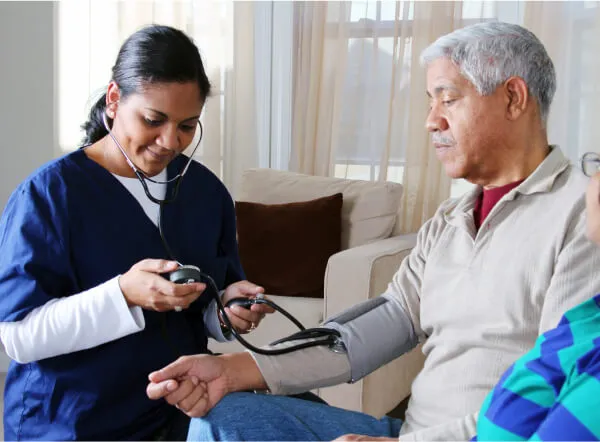Medical Residency Training

Medical residency training is an important step towards becoming a practicing physician in your chosen specialty. Read on to learn more about residency training programs, including admission, educational and exam requirements.
<h2 id="section---IsMedicalResidencyTrainingForMe">Is Medical Residency Training for Me?</h2>
<h3 id="section---OverviewOfMedicalResidencies">Overview of Medical Residencies</h3>
<p>If you have completed the schooling needed for your chosen medical career and finished your internship, the next step is medical residency training. A <a href="https://learn.org/articles/What_Are_the_Requirements_for_a_Medical_Residency.html">medical residency</a> training program allows graduates to practice the skills they learned in medical school under the direct supervision of experienced medical personnel. Residencies can take three to five years to complete, depending on your area of specialization, and usually occur at teaching hospitals, clinics and schools. An application is required before an aspiring doctor can be admitted as a medical resident.
</p>
<h3 id="section---AreasOfSpecialization">Areas of Specialization</h3>
<p>There are two main types of <a href="https://learn.org/articles/Medical_Doctor_Career_Profile_Employment_Outlook_and_Educational_Requirements.html">medical doctors</a>: primary care <a href="https://learn.org/articles/Schools_and_Majors_for_Aspiring_Physicians_FAQs.html">physicians</a> and specialists. Areas of specialization can include <a href="https://learn.org/articles/Anesthesiology_Become_an_Anesthesiologist_in_5_Steps.html">anesthesiology</a>, dermatology, radiology, <a href="https://learn.org/articles/Be_an_Internal_Medicine_Doctor_Your_Questions_Answered.html">internal medicine</a> and surgery. Upon completion of a residency program, you can become a candidate for a chief resident, which would require you to stay with the program for an additional year, acting as a leader for incoming residents. If not chosen as a chief resident, you may pursue a fellowship for additional training in <a href="https://learn.org/articles/Doctor_of_Infectious_Diseases_Career_and_Salary_FAQs.html">infectious disease</a>, gastroenterology or <a href="https://learn.org/articles/Cardiology_Become_a_Cardiologist_in_5_Steps.html">cardiology</a>.
</p>
<h3 id="section---JobDuties">Job Duties</h3>
<p>As a resident, you'll be required to treat patients, train those with less experience, attend conferences and participate in continuing education courses and labs. You may also be required to work on scholarly projects, which might involve clinical trials, advocacy or projects in medical education. As a resident, you'll most likely have to complete rotations through several departments, such as outpatient clinics, intensive care and inpatient wards.
</p>
<h2 id="section---HowCanIBecomeAMedicalResident">How Can I Become a Medical Resident?</h2>
<h3 id="section---Education">Education</h3>
<p>You'll need to successfully complete a 4-year undergraduate degree program, as well as four years of medical school before beginning a residency training program. Relevant undergraduate courses can include <a href="https://learn.org/articles/Biology_Major_Online_and_Campus-Based_Program_FAQs.html">biology</a>, chemistry or <a href="https://learn.org/articles/Bachelors_Degrees_in_Physics_Program_FAQs.html">physics</a>; however, you do not need to major in these areas. You could, for instance, major in <a href="https://learn.org/articles/French_Language_Courses_and_Degree_Programs_Your_Questions_Answered.html">French</a> and minor in biology to meet the prerequisites for medical school. However, competition for admission to medical school is intense, and you must score well on the Medical College Admission Test (MCAT).
</p>
<h3 id="section---ExamRequirements">Exam Requirements</h3>
<p>The MCAT is a multiple-choice examination that will test your knowledge of scientific principles, as well as your critical thinking, problem-solving and writing skills. All <a href="https://learn.org/articles/What_are_the_Requirements_for_Getting_into_Med_School.html">medical schools</a> in the U.S. require this exam for admissions, which you may sit for three times during a single year. After successfully passing the exam, you can seek admission to a medical school accredited by the Association of American Medical Colleges (AAMC) and the American Medical Association (AMA).
</p>
<h3 id="section---Curriculum">Curriculum</h3>
<p>During the first half of a medical program, you'll study medical theory, immunology, <a href="https://learn.org/articles/Online_Biochemistry_Courses_and_Schools_Answers_to_Your_Questions.html">biochemistry</a> and <a href="https://learn.org/articles/Pharmacology_School_and_Degree_FAQs.html">pharmacology</a>. You'll also become familiar with healthcare laws. The second half of the program will consist of clinical training in both generalized and specialized medicine. In the final year of the program, you'll choose an area of focus in which to complete your residency.
</p>
<h3 id="section---ResidencyAssignments">Residency Assignments</h3>
<p>After graduating from medical school and earning your Medical Doctor (M.D.) degree, you can begin your residency as a <a href="https://learn.org/articles/Medical_Doctor_Become_a_Medical_Doctor_in_5_Steps.html">medical doctor</a>. Positions are usually secured through the National Resident Matching Program (NRMP) and must be approved by the Accreditation Council for Graduate Medical Education (ACGME). Recent graduates wait during the month of March for what is known as 'Match Day,' to learn where they'll be performing their residencies. There is intense competition for a limited number of spots available around the country.
</p>
<h3 id="section---CertificationAndLicensing">Certification and Licensing</h3>
<p>As a qualified graduate of an accredited medical school, you'll be eligible for a state license. Requirements include a satisfactory score on a state board examination, after which you'll be licensed to work in a hospital, private practice or health center, depending on your specialty.</p>


.svg)